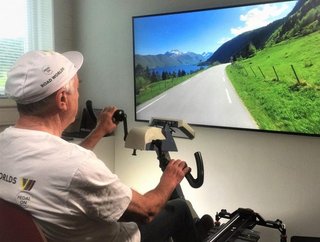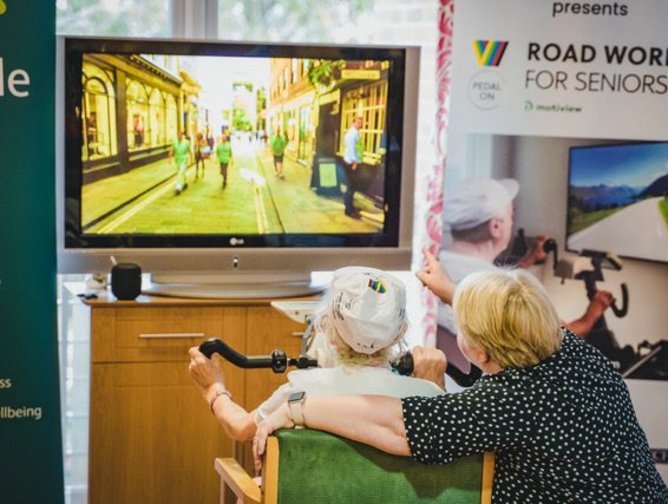Motitech study: virtual cycling technology helps elderly

Cycling is known for its many health benefits - the intense exercise strengthens heart muscles, lowers blood fat levels and creates an endorphin high. Yet for the elderly, the level of agility needed makes it difficult for keen cyclists to get on the road.
Norwegian health tech company Motitech has a solution to boost the physical and mental health of elderly people - virtual cycling with Motiview.
The immersive health technology includes an exercise bike built for those with minimal mobility levels. The elderly person rides the bike (without having to move or steer it), while a video plays in front of them from the perspective of someone actually cycling on the road.

Using new technologies to improve the health of elderly people
A new study: Combining Physical, Cognitive and Social Activity for Older People and People with Dementia, run by Motitech and funded by Sport England’s Active Ageing fund, showed that virtual cycling technology improves physical activity and reduces pain, depression and anxiety.
Results showed:
- 24% of participating care home residents moved from inactive to active during a three-month period
- 14% improvement in ‘general state of health’
- A reduction in anxiety, depression and pain
- An increase in independence among residents
- Care home staff felt more motivated in their jobs

Matthew Archer, Motitech’s market and business developer
Immersive technologies which include physical, cognitive and social activities will transform health outcomes
Matthew Archer, Motitech’s market and business developer, knows that immersive technologies have a huge part to play in supporting care home residents with serious health problems.
“Over the last two decades, we’ve seen a marked increase in disability and complex health problems amongst the 500,000 care home residents in the UK. It’s a trend that will continue as the UK’s population continues to age, making the need for investment into interventions that support proactive and preventative care more urgent than ever.
“Immersive interventions like the Motiview, that combine physical, cognitive and social activity, have a key role to play, with the results of this study demonstrating how they can achieve significant health outcomes, reducing pain, increasing independence, and improving the mental wellbeing of care home residents.
“It’s clear that engaging with interventions such as this, even on a short-term basis, can have long lasting benefits for care home residents, with the study showing the results were felt by participants three months after the end of the programme.
“It’s not just the residents who benefit either, with the findings clearly demonstrating the positive impact on staff, from a motivation and wellbeing perspective, and the healthcare system as a whole.”






